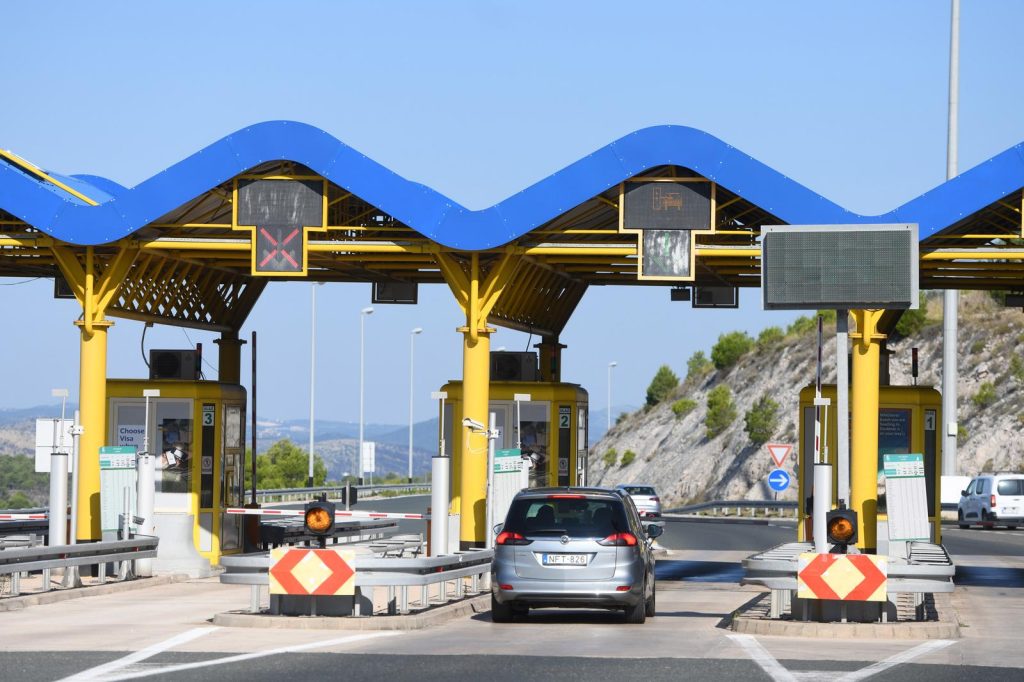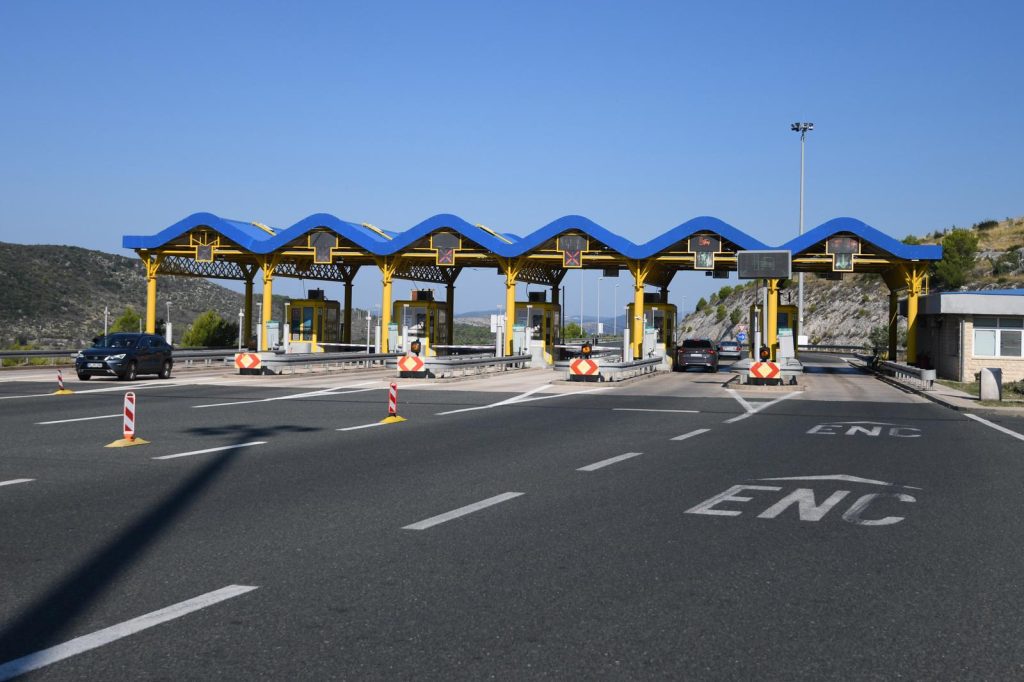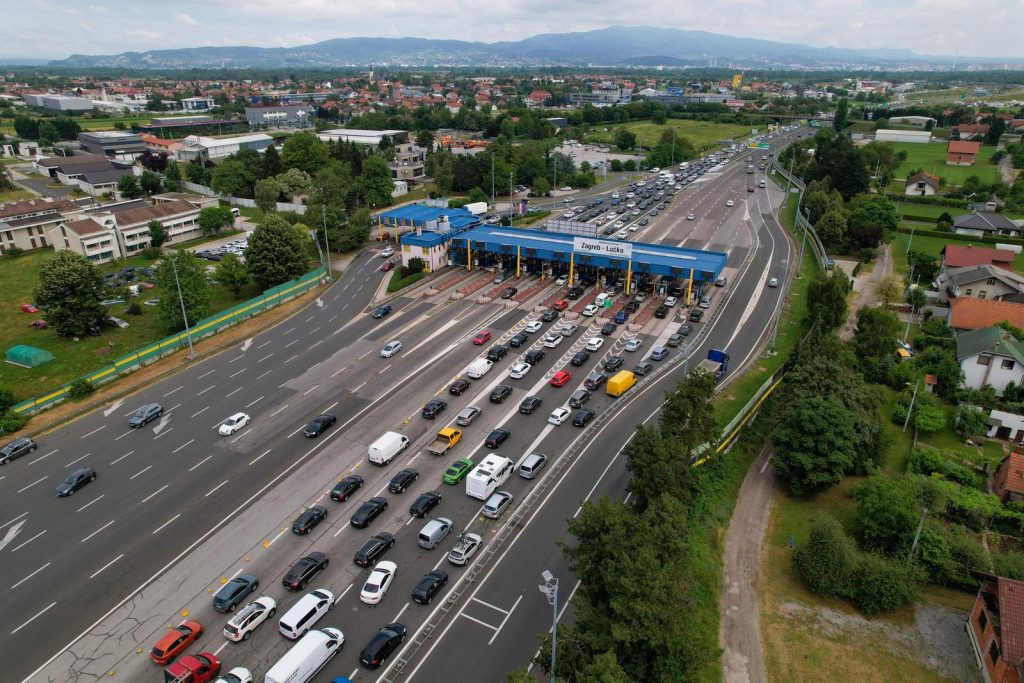February the 26th, 2024 – A new Croatian road toll payment system is now on the horizon, and it should be in operation all of the country’s motorways, regardless of whether or not they’re managed by Hrvatske Autoceste.
As Poslovni Dnevnik writes, the Ministry of Maritime Affairs, Transport and Infrastructure has been announcing the introduction of a new Croatian road toll payment system for several years now. Last year, things finally moved from the deadlock of talk and headlines to the announcement of a tender for these significant works.
The Czech company Tollnet and Slovakia’s SkyToll, both of which have several similar projects behind them, including the e-vignette system used in neighbouring Slovenia, were selected in the tender for the creation of a new Croatian road toll payment system. Their offer of 79.91 million euros plus VAT was the most economically advantageous offer of all, but the decision received two appeals.
Transport Minister Oleg Butković announced 2025 as the deadline for the works, but as things currently stand, the new Croatian road toll payment system won’t actually be in place until the second quarter of 2026. Even at that, 2026 is seen as the best case scenario, according to a report from Novi list.
If, on the other hand, the State Commission for the Protection of Market Competition (DKOM) accepts the appeal of the Austrian company Kapsch TrafficCom on the decision on the selection of the contractor, it will delay the implementation of the new Croatian road toll payment system for an indefinite period of time.
Higher values than previously estimated

In the tender itself, the estimated value of the works rose to a massive 100 million euros, which is approximately fifty percent more than the Ministry of Transport’s initial estimates, and deadline for introducing the new system was extended to two years. That’s two years from the date of signing the contract with the contractor, which, even if DKOM throws out the aforementioned Austrian enterprise’s appeal, realistically means that the contract with SkyToll could be signed sometime in April this year. In that case, the new Croatian road toll payment system would be implemented before the summer tourist season of 2026 at the very earliest.
Croatian Motorways (HAC) received offers back in July of last year, so it’s somewhat unclear why the state company that manages this country’s motorways took almost seven months to simply choose the best one from the ten that were received.
“The contractor’s obligation is to create an executive project of the system (“Design and Build” or “Projektiraj i gradi”), to carry out the administrative procedure and to obtain all the necessary permits, as well as to carry out all of the work on the installation of portals and equipment on the motorways under traffic conditions. That two-year period also includes a two-month testing period,” they explained from HAC, which is the project’s investor.
A new Croatian road toll payment system with existing technology

The new system should use two existing technologies that are actually already in use across the world, DSRC technology (radio communication at 5.8 GHz) for charging toll fees to the users of ENC devices, and ALPR technology (the recognition of vehicle license numbers) for charging toll fees to occasional users for light vehicles and the toll payment supervision of all passing vehicles.
The new Croatian road toll payment system will be based on the free flow of vehicles, without them needing to stop to pay. This should significantly increase traffic flow and consign toll booths and their accompanying infamous summer queues to the history books once and for all. The system should function on the principle of charging based on the actual number of kilometres travelled along the motorway network in Croatia, whereby each kilometre travelled on any of the motorways within HAC’s network should cost the same, which isn’t the case now.
The system should work on all of the country’s motorways, both on those managed by Hrvatske Autoceste and on concessioned motorways, such as the Istrian Y (Ipsilon) and the Zagreb-Macelj motorway.
The decision on the choice of SkyToll and TollNet was appealed by the Austrians, as well as by the Chinese (CTFO Jeton Technology), while the Chinese company’s appeal was rejected as irregular because it didn’t even send DKOM proof of their payment of 66,000 euros in compensation for the appeal process.
The appeal of Kapsch and Spinne Traffic is still pending. The consortium complained on three grounds, the most problematic of which could be that, according to the appellant, the selected bidder’s experts have no references in the implementation of the system as it is intended to be introduced in Croatia, which was one of the conditions of the tender. If DKOM accepts this appeal, the question is how long the introduction of the new collection system will be extended.











